Listening to Ghost Stories Could Make You a Better Person and Friend
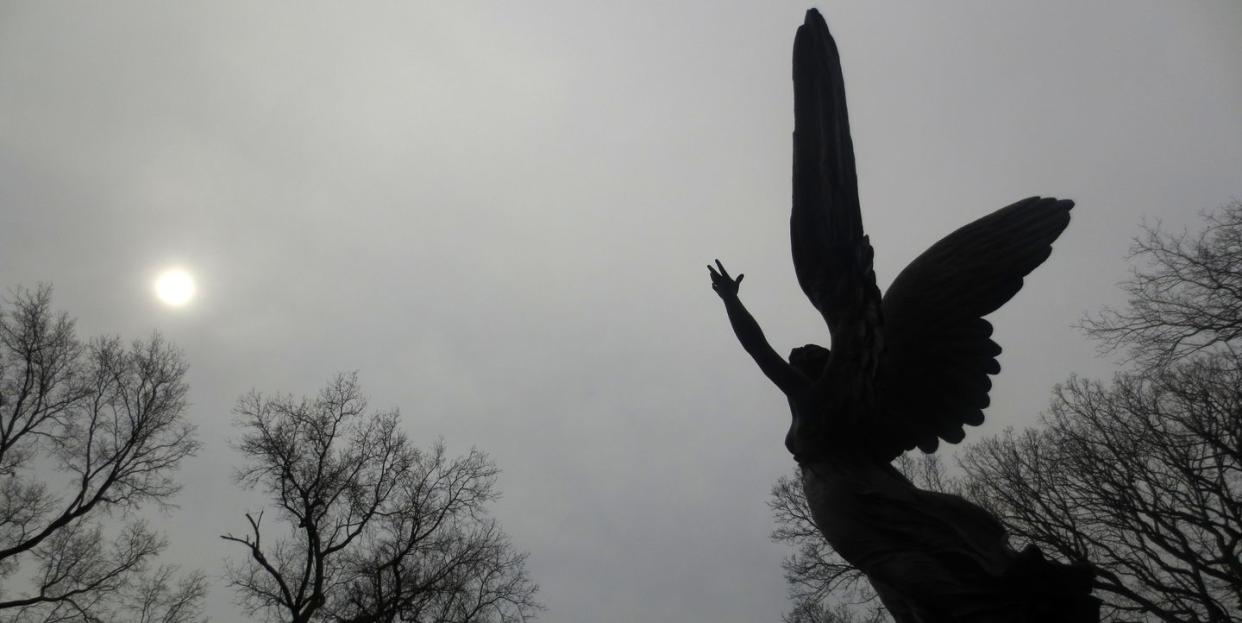
"Hearst Magazines and Yahoo may earn commission or revenue on some items through the links below."
Are ghosts real? Well, it depends on who you ask, of course. But even though we'll probably never know for certain, it doesn't stop us from trying to find answers (over 25,000 people ask Google that very question each month)—and it's precisely that ambivalent space in which ghosts thrive: simultaneously circumambient yet not even here at all... mysterious, liminal, impossible to neatly define or categorize. That's the very reason we are so fascinated with ghost stories. So perhaps the better question is why do people believe in ghosts? In the U.S. alone, a recent poll revealed that almost half of the population identifies with believing in ghosts to some degree.
"Science doesn't tell you to believe in ghosts and most organized religions really don't tell you to believe in ghosts. And yet people believe in ghosts—this is folklore at its finest... Ghosts have an interesting role in that they are a really well-believed and well-discussed, but completely unofficial part of our culture," says Tok Thompson, Ph.D., renowned folklorist, author, and professor of anthropology at the University of Southern California. But why? Why do we keep passing on ghost stories, and in some cases, believing them?
Professor Thompson points out that beliefs are contextual, and within the topic of the paranormal, this means that what we experience as true and real is dependent on a whole host of variables. These variables can be as fleeting as one's immediate environment. For example, "if I asked my students in a classroom under neon lights how people believe it ghosts, very few people will raise their hands," Professor Thompson explains. "But, if we're all sitting together in some kind of mausoleum with gothic architecture in the moonlight and a wolf starts howling in the middle of Los Angeles where that doesn't usually happen, then more people will raise their hands," he adds. So it can be very mood-based.
And, like moods that come and go, belief can also be seasonal. Unsurprisingly, interest in ghost stories peaks in October. According to Google Trends, search queries for keywords like "ghost stories" and "real haunted houses" increase by over 400 percent in the weeks leading up to Halloween. Conversely, while the entertainment factor is certainly a big driver around spooky season, the question "are ghosts real?" has a pretty consistently high search volume throughout the year.
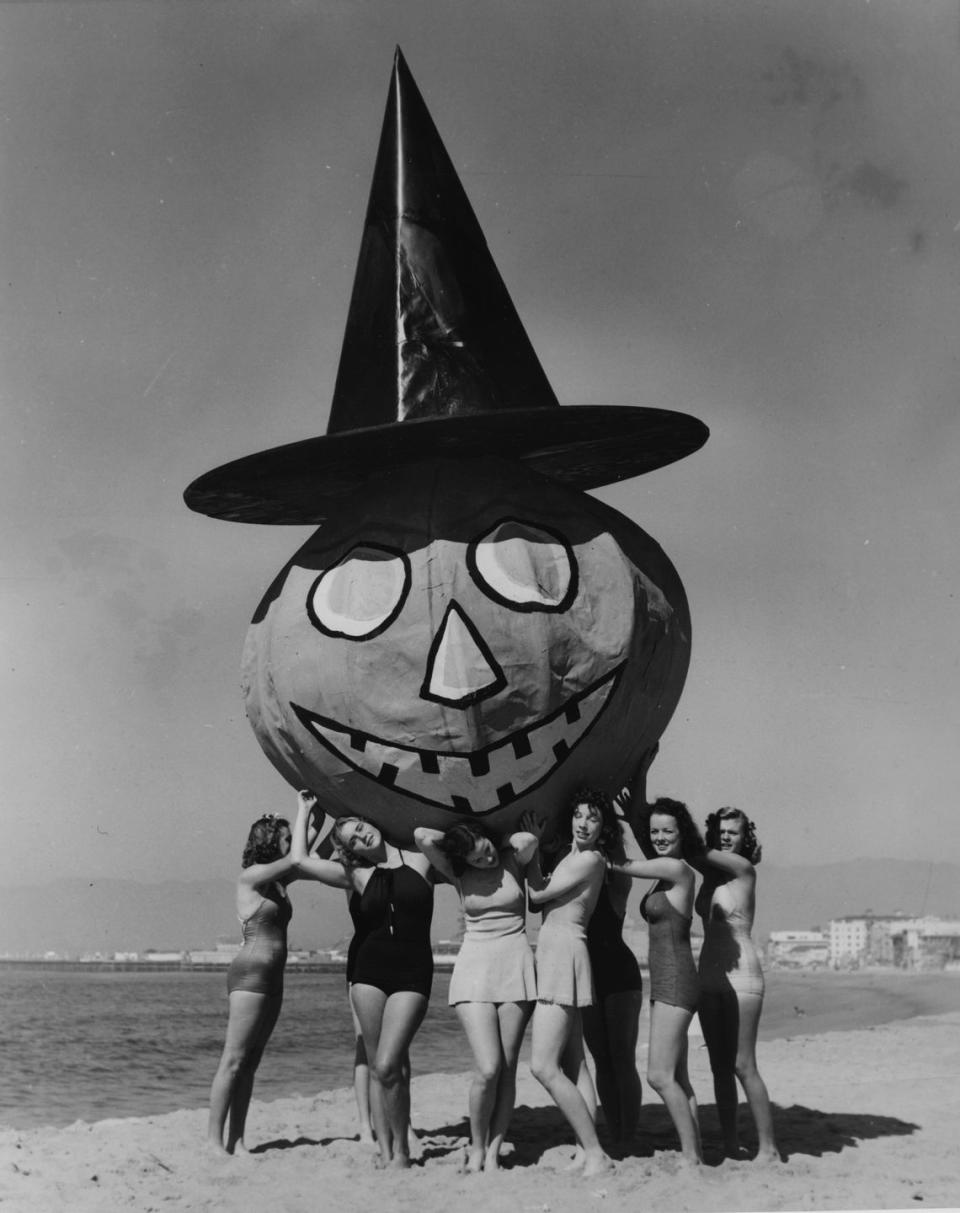
Another important factor in the believability of a specific ghost story is the storyteller. As Professor Thompson reminds us, "some storytellers are so good at presenting a performance that you really want to believe it, no matter how ridiculous the story may be. There's an aesthetics to belief," says Professor Thompson. If two different people each told the same ghost story, one of them might tell it in a way that's more compelling, and thus believable.
Of course, there's cultural background, too, which includes everything from nationality to religion and really shapes the way we make sense of the world, including whether or not we believe in ghosts, and how that belief manifests itself. In the U.S., there tend to be two main types of ghosts, the friendly familial ghost (like a grandparent or a life partner) and the malevolent, haunting spirit, which tends to be the more common representation in entertainment. It tells us a lot about what we fear and how we deal with bereavement and death. And though a huge percent of the U.S. population does indeed believe in ghosts, it's somewhat taboo, partially because we emphasize only trusting things that can be proven scientifically.
But if you go somewhere else in the world, you might notice different patterns. Professor Thompson explains that Japan is largely built around the motif of ghosts, particularly the "ancestral ghost who are warmly welcomed and sought out during the annual Oban festival, which is as important as Christmas in the U.S. and includes rituals like setting a place for the dead and inviting them in to eat with you again."

In Taiwan, over 95 percent of the population believes in ghosts. Their calendar system even incorporates this with a "ghost month," where the government shuts down, pausing official proceedings, like court cases. Whereas "France tends to have a low belief in ghosts, and instead, people claim to see saints," which can be understood as a variation of a ghost, says Thompson. The same is true when you look at the very vocabulary we use to define the motif of a ghost.
In Anglo-Saxon discourse, "a ghost tends to be thought of as a singular human soul associated with a person, which aligns with our idea of one soul per person. Not every culture has that. Sometimes people have sort of communal souls and family souls, in West African traditions, people have two souls, and in ancient Egypt, people had five souls. So, even the question of what is a soul? where does it go? has as enormous variation. This really gives you a sense of the richness of the tradition and all the different ways you can look at it," says Professor Thompson.
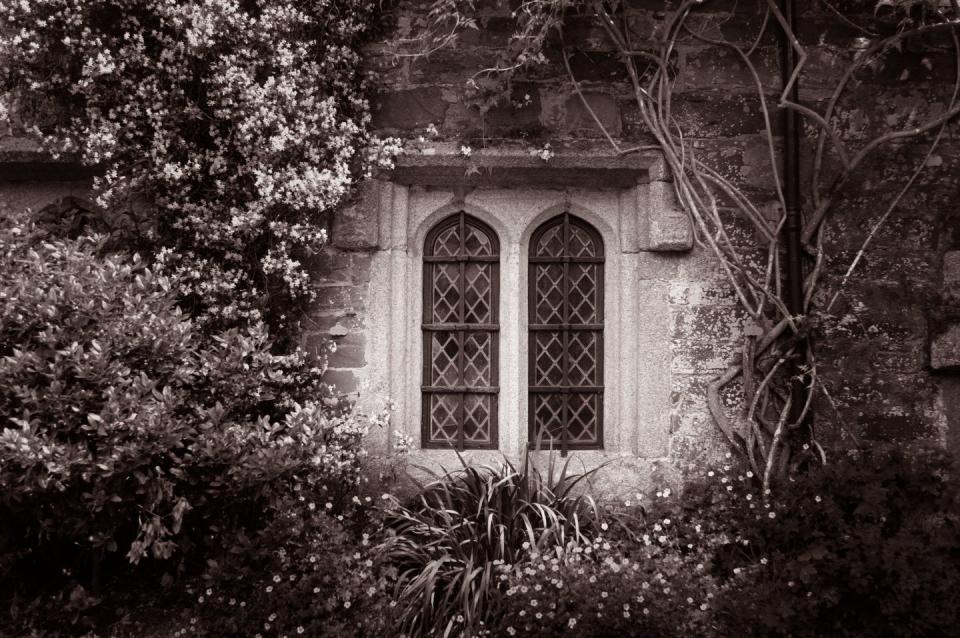
So while every culture may present ghosts and their relationship to them differently, it is indeed found throughout the world. Thompson describes it as a "worldwide tradition with an ancient history and overlaps with politics and history and religion." Even a widespread lack of belief in ghosts in a given culture can tell you a lot about the people in it. That's partially why he designed a course at USC that revolves around ghost stories. The university wanted him to spotlight a theme that transcends various disciplines and is also an accessible touchstone for a lot of people. "Everybody knows what we mean when we say ghosts, and I had students from around the world at my course," which made it even more fruitful for discussion, as learning about the different cultural flavors allows people to understand their own culture a little more deeply.
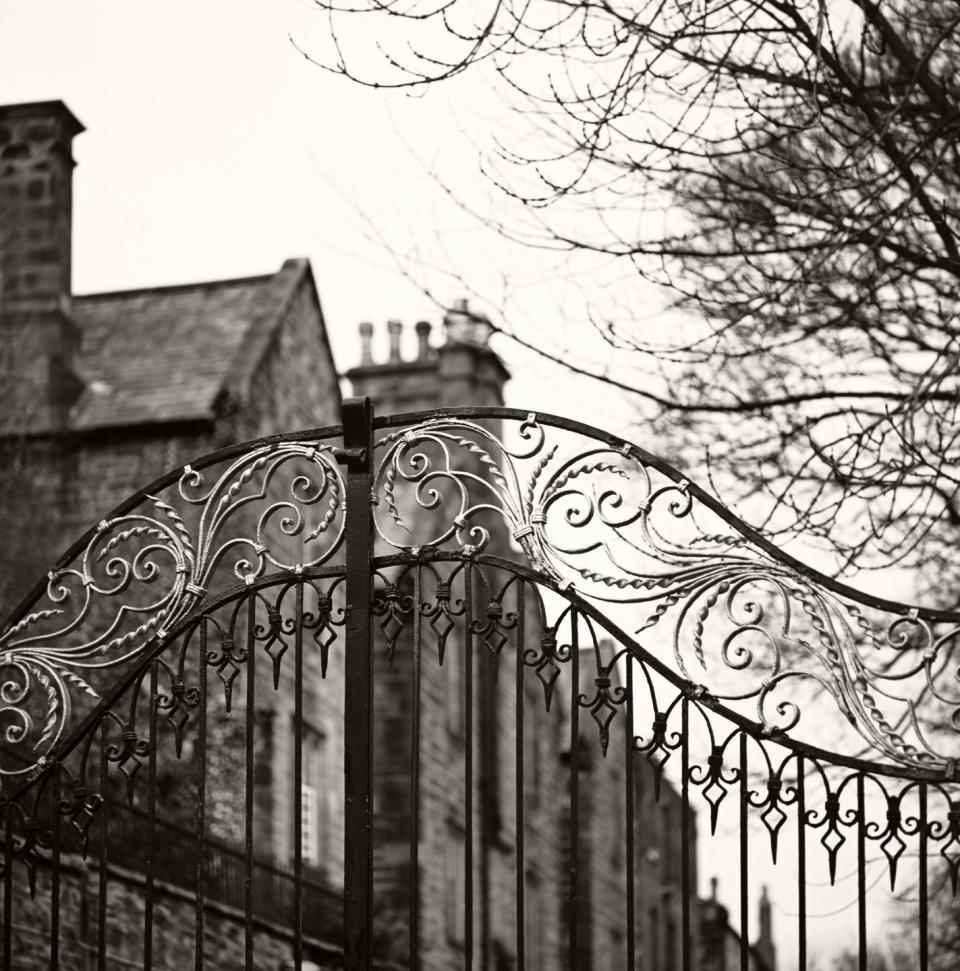
One way to learn more about the underlying cultural tensions within ghost stories is to examine the setting they function within: the grand old haunted house. In the U.S., there's a common trope of the fancy old house that used to be beautiful is now haunted. Thompson argues that there are distinct societal lineages for why this type of house keeps popping up as the backdrop for ghost stories. In western discourse, these haunted house representations "tend to suggest that maybe there are some ethical issues with the way we distribute wealth in our society. It's not so much the gothic castle pointing to the fall of the aristocracy as it is in England, because we don't have an aristocracy per se, but what we do have in America is a huge divide between the haves and a have nots."
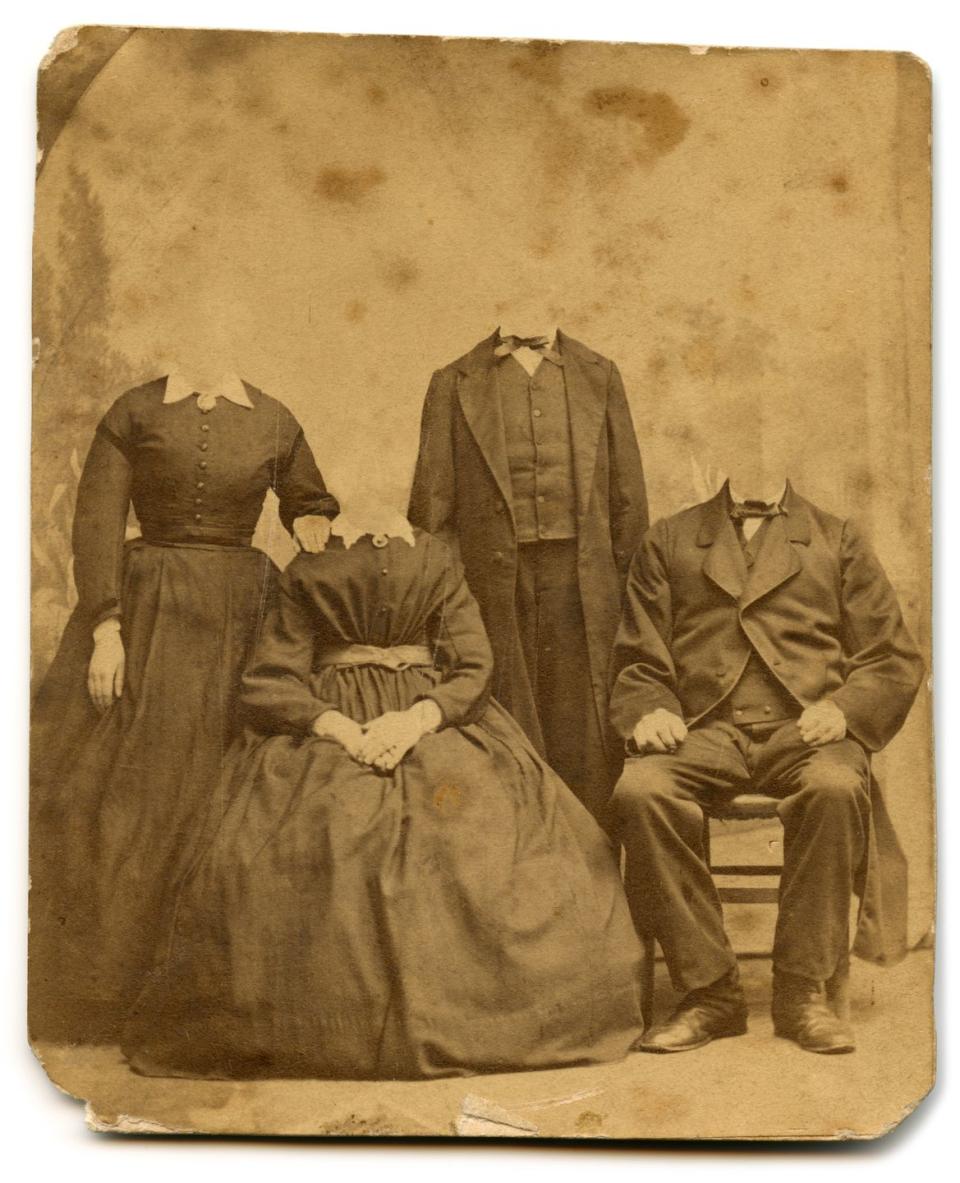
Regardless of the size of a house, shelter is essential, and our most private moments tend to occur within our own homes, whatever they look like. So if we do most of our living in our homes, then they’re bound to represent the people who once lived in them even once those people pass. Maybe they will even go on to haunt them. Belief aside, ghost stories have a real impact on the empirical lives of many people, including both believers and skeptics alike.
Typically studied around Halloween, the Ghostbusters Ruling, known more formally as Stambovsky vs. Ackley, changed the law in the 1990s, mandating that listing agents disclose if a house is haunted (you can read more about the home here). In the ruling, the court stated, “as a matter of law, this house is haunted," a controversial line, as we typically think of legal proceedings as factual and objective, while all things paranormal are associated with the binary opposite: spirituality, faith, and unprovable things. "This happens all the time in the world of real estate [and] you're legally required to disclose this fact to any potential buyers, the reason being that it would take down the market value and that it's a known condition, you can see that the idea of haunted houses is not really official, but it is ubiquitous in our society" to the extent that certain laws validate belief in ghosts, Professor Thompson says.
Now that he has been teaching the course for over a decade, he's been noticing more and more ghost stories set in the cyber realm, demonstrating how contemporary of a tradition it is. So, even though ghosts are distinctly located in the past—or they were when they were alive, at least—their stories have always evolved to fit within a contemporary framework. "I remember when the internet sort of popped into being, and there were no ghosts on the internet. Back then it was not a haunted place. And now it's a very haunted place," he adds. And that connects back to the idea of a haunted house, if the internet is where we do so much living, then it's going to become haunted, too.
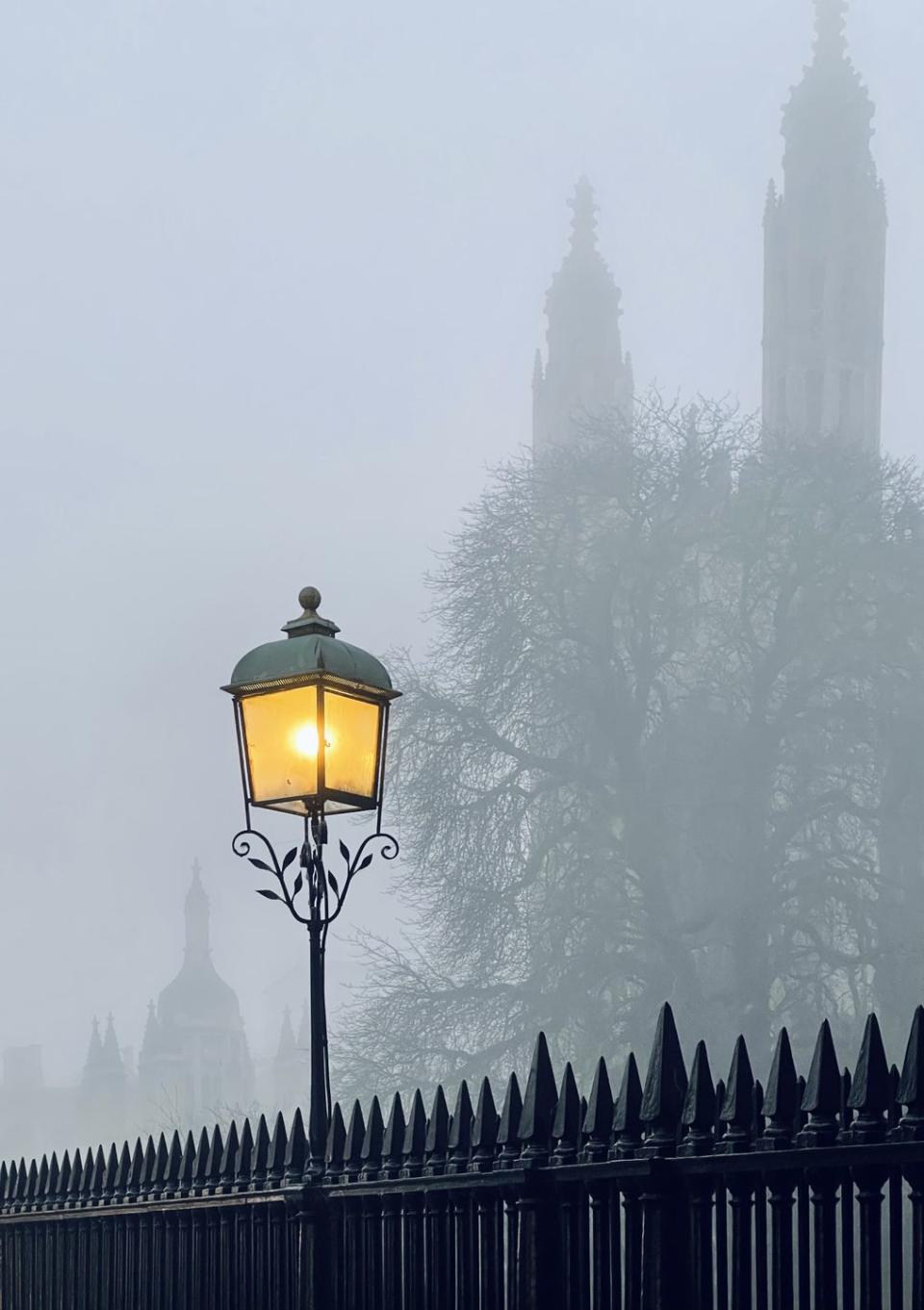
So why do we continue to pass down ghost stories? Well, they seem to offer utility in a few ways: First, they're simply fun. "At summer camp, you sit around and you tell ghost stories, we watch scary movies... It's always been done for entertainment, but also it's always about what to believe, right." But there's probably more to it than that. "Ghost stories aren't mandated in high school, the government and church don't require you to learn them, but people choose to learn and pass them on. Because very often in ghost stories, there's a possibility that the ghost can be appeased, that you can acknowledge the wrongs, and give them a proper burial, whatever the case may be. And I think that's a really powerful ethical message to consider: We can't change the past, but you can certainly try to do the right thing now," Thompson says.
Ghost stories are important because they provide another view of history you might not otherwise find in a textbook, and they can become tools of resistance that ask listeners to unpack local histories in a new light or from a different, less official perspective. And under that air of ambivalence and mystery that breeds fear, ghost stories give us hope.
To hear more ghost stories and to learn more from Professor Thompson, subscribe to our haunted house podcast, Dark House, on Apple Podcasts, Spotify, Audible, or anywhere you listen.
You Might Also Like

